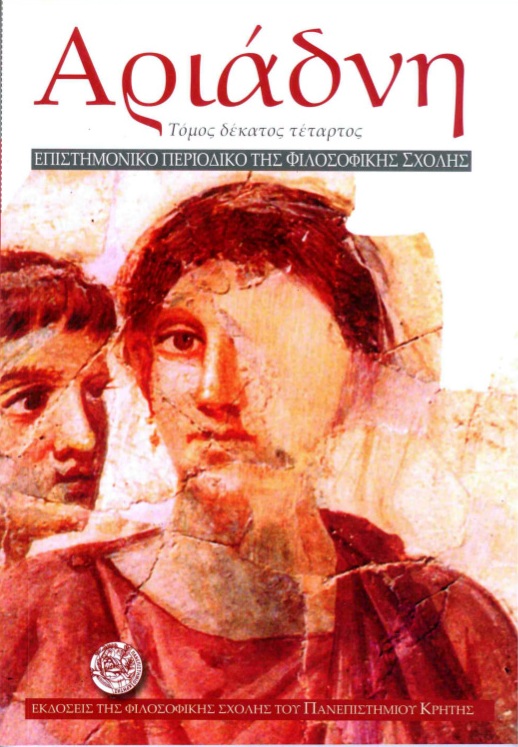Μαμάϊμι : a contribution to the study of the oracular tradition in the period of the fall of Constantinople
DOI:
https://doi.org/10.26248/ariadne.v14i0.414Abstract
ΜΑΜÁÏΜΙ, an acronym of the Palaeologean emperors down to John VIII, is one of the numerous oracles that were circulating at the time of the fall of Constantinople, and certainly in the period after the event. This oracle belongs to the type of the «unintelligible words» that conveyed a codified message and usually concerned dynastic legitimation. Nevertheless, in the present case, the oracle’s message concerns the fall of Byzantium. The existing records of μαμάϊμι are supplied by the historical text of Doukas and an anonymous brief chronicle of the period c. 1220 - 1460 (n. 22 in Schreiner’s edition of the Short Chronicles). The anonymous chronicle, whose composition can be dated between 1470 and 1476, does not reflect any influences from the older text of Doukas, therefore, the two texts can be regarded as distinct sources of an independently existing tradition about the oracle.
The oracle of μαμάϊμι does not seem to have any eschatological connotations, but it reflects some influence from the Byzantine eschatology that is discernible in the use of the symbolic number seven. Th e symbolisms of seven are also present in Gennadios’s chronography and reflect an influence from the Revelation, that was beginning then to become especially popular among contemporaries who understood the fall of Constantinople as a sign of the approaching end of the world. Another influence that seems to have shaped the form and meaning of μαμάϊμι can be associated with the Leonine oracles, that introduce the scheme of the metaphysically predetermined end of a dynastic succession, which in the case of μαμάϊμι is identified as the end of the empire.
The view of John VIII as the last emperor can be explained first by them widespread doubt on Constanine XI’s royalty, since he had not been crowned by a patriarch. Another explanation may be established on symbolic grounds and reflect an anti-unionist position, according to which, by accepting Church union John VIII brought the moral collapse of the “Roman” Church and state. Two other known oracles, that equally present John VIII as the last emperor, the one cited in Gennadios’ chronography, the other by Chalkokondyles, are directly expressive of an anti-unionist logic. Therefore, μαμάϊμι can be suggested to belong to the same group of oracles and its origins to be associated with antiunionist circles.
In any case, Doukas’ reference to μαμάϊμι is free of anti-unionist connot ations. Instead, his use of the oracle serves the introduction of the new profecies that concerned the collapse of Ottoman rule. Doukas presents himself to accept those profecies in accordance to the scheme of the common destiny of the Palaiologoi and the Osmanlis that was based on the coincidence of Osman’s emergence at the times of Michael VIII. More precisely, Doukas openly expresses his expectation that Mehmed II would be the last Ottoman ruler. This statement by Doukas is allusive of the symbolisms of number seven, which is expressed as regards the Palaiologoi through the reference to “μαμάϊμι” and implicitly projected to the Osmanlis, as Mehmed II was the seventh ruler of the house of Osman. Doukas’ position reflects contemporary ideas of the expected fall of the Ottoman empire in the reign of its seventh ruler, which are exemplified in the writings of Giovanni di Viterbo (1480). In so far as the political ends of Doukas’ use of prophecy are concerned, we suggest that the prophetic messages he projects aim at a rallying of the Orthodox population of Latin Romania around their rulers, as well as at promoting their determination to resist the Ottoman expansion.
Downloads
Published
How to Cite
Issue
Section
License
Authors retain copyright and grant the journal right of first publication with the work simultaneously licensed under a Creative Commons Attribution-NonCommercial-ShareAlike 4.0 International License that allows others free use of the work for non-commercial purposes as long as the author/s and the journal are attributed properly and the new creations are licensed under identical terms (Creative Commons Attribution-NonCommercial-ShareAlike 4.0 International License).


